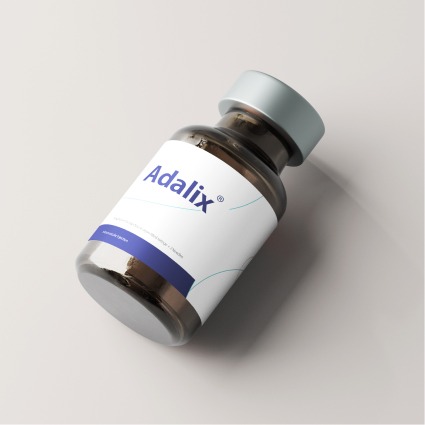Introduction
Oman’s healthcare sector stands at a transformative juncture, poised to align with the ambitious goals set forth by Vision 2040. This vision aims to enhance healthcare accessibility and quality, marking a pivotal role in the nation’s broader socio-economic development strategies. By investing in healthcare infrastructure and innovation, Oman seeks not only to improve public health outcomes but also to stimulate economic growth through enhanced sector capabilities.
The Economic Impact of Pharmaceutical Innovations
Innovations in pharmaceuticals significantly influence national economies, which is evident from global examples where medical breakthroughs have spurred economic growth through exports and local industry enhancement. Oman has the potential to harness similar benefits by catalyzing its pharmaceutical sector towards innovation and global competitiveness.
Novo Nordisk and Denmark’s Economic Boost
Denmark’s experience with Novo Nordisk illustrates the potential economic uplift that pharmaceutical innovations can contribute to a nation’s GDP. Semaglutide, a diabetes medication developed by Novo Nordisk, has not only been a health game changer but also a significant export product. Oman can emulate this success by fostering an environment conducive to pharmaceutical research and development, potentially leading to similar breakthroughs that could position the Sultanate as a leader in the pharmaceutical field.
Promoting Pharmaceutical Self-reliance in Oman
Building on the need for economic diversification, Oman’s pursuit of pharmaceutical self-reliance is geared towards reducing import dependency and fostering local industry. Through strategic partnerships and governmental support, the country aims to establish a robust local pharmaceutical manufacturing sector capable of meeting domestic needs and penetrating international markets.
Towards Self-sufficiency in Vital Medicines
Oman’s initiative towards self-sufficiency in vital medicines is centered on building a resilient healthcare system capable of internally meeting its pharmaceutical needs. This strategic shift is driven by the necessity to mitigate the risks associated with global supply chain disruptions that can affect drug availability and escalate costs. By bolstering local pharmaceutical manufacturing, Oman aims to secure a continuous supply of essential medications, thus ensuring that healthcare services remain uninterrupted even during global crises. Furthermore, enhancing local production capabilities not only serves to stabilize drug supply but also encourages the development of new pharmaceutical technologies and expertise within the country. This self-sufficiency is expected to lead to improved healthcare outcomes by ensuring that all residents have access to necessary medicines in a timely and cost-effective manner.
Reducing Dependency on Drug Imports
Dependency on imported drugs poses risks related to cost, supply chain vulnerabilities, and economic security. Oman’s strategic shift towards enhancing local drug production is aimed at mitigating these risks by establishing a reliable, efficient, and competitive pharmaceutical industry.
Enhancing Local Production Capacities
The development of local production facilities is crucial for achieving self-sufficiency. This strategy includes upgrading technology, improving regulatory frameworks, and fostering a skilled workforce to ensure that locally produced medicines meet international standards of quality and efficacy.
Impact on Public Health
Local production of medicines is intrinsically linked to better health outcomes. By ensuring a steady supply of essential drugs, Oman can address health emergencies more effectively and manage chronic diseases more efficiently, leading to improved overall public health.
Cost-saving and Public Health Enhancement
The strategy to enhance public health through cost-saving measures in Oman’s healthcare sector focuses on optimizing resource allocation. By reducing expenditures on importing expensive pharmaceuticals, the nation can reallocate resources towards expanding and improving healthcare infrastructure and services. The development of local pharmaceutical industries plays a crucial role in this aspect, as it helps lower the cost of medicines by avoiding hefty import fees and fosters a competitive market that can drive prices down. These savings can then be used to enhance public health programs, including preventive care, which further reduces the long-term healthcare costs associated with treating chronic diseases and other health issues. Ultimately, this approach not only ensures economic efficiency but also enhances the overall health of the population by making preventative and routine care more accessible.
Economic and Health System Benefits
The local production of drugs brings significant cost savings and economic benefits. These savings can be redirected into further developing healthcare infrastructure, research, and services, thereby enhancing the health system’s capacity to serve the population more effectively.
Strategies for Cost Management
Oman’s healthcare strategy includes measures to manage and reduce the costs associated with healthcare delivery. These measures include bulk purchasing, local manufacturing, and the use of generic drugs, all aimed at making healthcare more affordable for the government and citizens alike.
Biotech Drugs: Import Costs and Alternatives
The importation of biotech drugs presents a significant financial challenge for Oman, as these medications are typically costly and constitute a substantial portion of the healthcare budget. To address this issue, Oman is exploring alternatives to these imports through the development of a local biotech sector. Investing in local biotechnology not only has the potential to reduce healthcare costs but also stimulates innovation in treating diseases that are prevalent within the region. Establishing facilities for biotech research and production can lead to the discovery and development of new drugs that are better suited to the genetic and environmental specifics of the Omani population. Moreover, such investments contribute to the creation of high-skilled jobs. They can position Oman as a leader in biotechnology in the Middle East, thus opening up new economic and health opportunities.
Challenges of Importing Biotech Drugs
The importation of biotech drugs involves high costs that can strain national healthcare budgets. Oman faces challenges similar to those of other nations in managing the costs associated with these vital treatments.
Developing Local Alternatives
To combat these challenges, Oman is encouraged to invest in biotechnology research and development locally. This initiative not only aims to reduce import costs but also to foster innovation within the Sultanate, potentially leading to breakthroughs in biotech that could have both health and economic benefits.
Localizing Technologies for Self-sustainability
Oman’s approach to localizing healthcare technologies aims to reduce dependence on foreign medical solutions and foster a sustainable healthcare ecosystem. This involves adapting existing technologies to fit the local context better and developing innovations that address specific health challenges faced by the Omani population. By investing in local research and development, Oman can tailor healthcare solutions to improve effectiveness and efficiency, ensuring that medical care is both accessible and suitable for its citizens. The benefits of such localization include not only enhanced healthcare outcomes but also the stimulation of the local economy through the development of a vibrant technology sector. This strategic focus on local technology not only meets immediate healthcare needs but also builds long-term capacity for innovation and independence in the healthcare sector.
Advancing Local Healthcare Technologies
Adapting and developing healthcare technologies locally ensures that solutions are tailored to meet the specific needs of the Omani population. This approach not only enhances healthcare delivery but also fosters a domestic industry around medical technology.
Benefits of Technology Localization
The benefits of localizing healthcare technologies include more targeted healthcare solutions, economic growth through industry development, and increased employment in high-tech sectors. This strategic focus supports Oman’s broader goals of economic diversification and sustainable development.
Summary
Oman’s healthcare sector is set for a transformative growth trajectory, driven by strategic investments in infrastructure, a focus on pharmaceutical innovation, and a shift towards self-sufficiency in medicine production. These efforts are crucial for enhancing the health outcomes of the population and positioning Oman as a leader in healthcare and pharmaceuticals in the region. The commitment to these goals reflects Oman’s broader vision of sustainable development and economic diversification, highlighting the healthcare sector’s integral role in the nation’s future.

